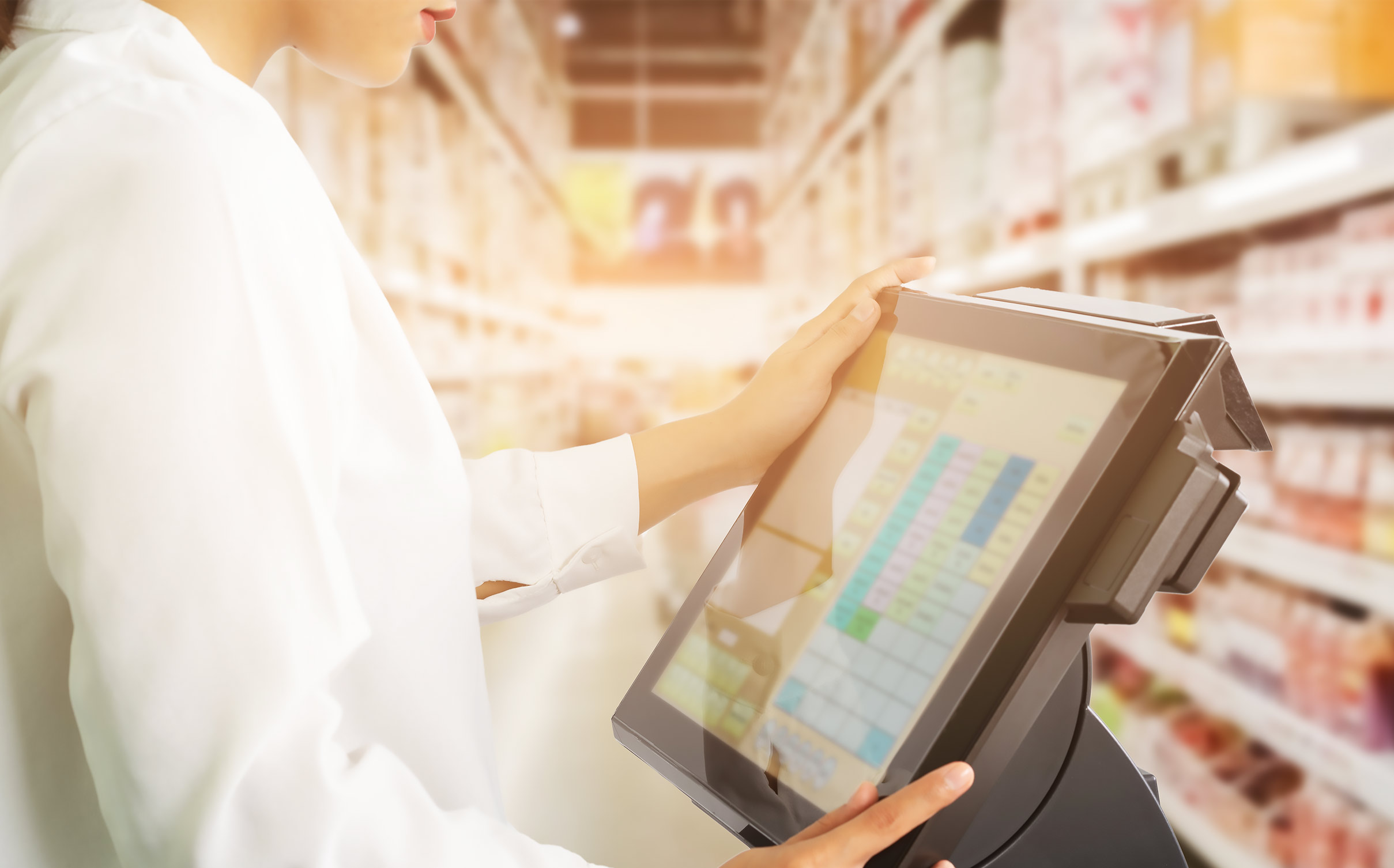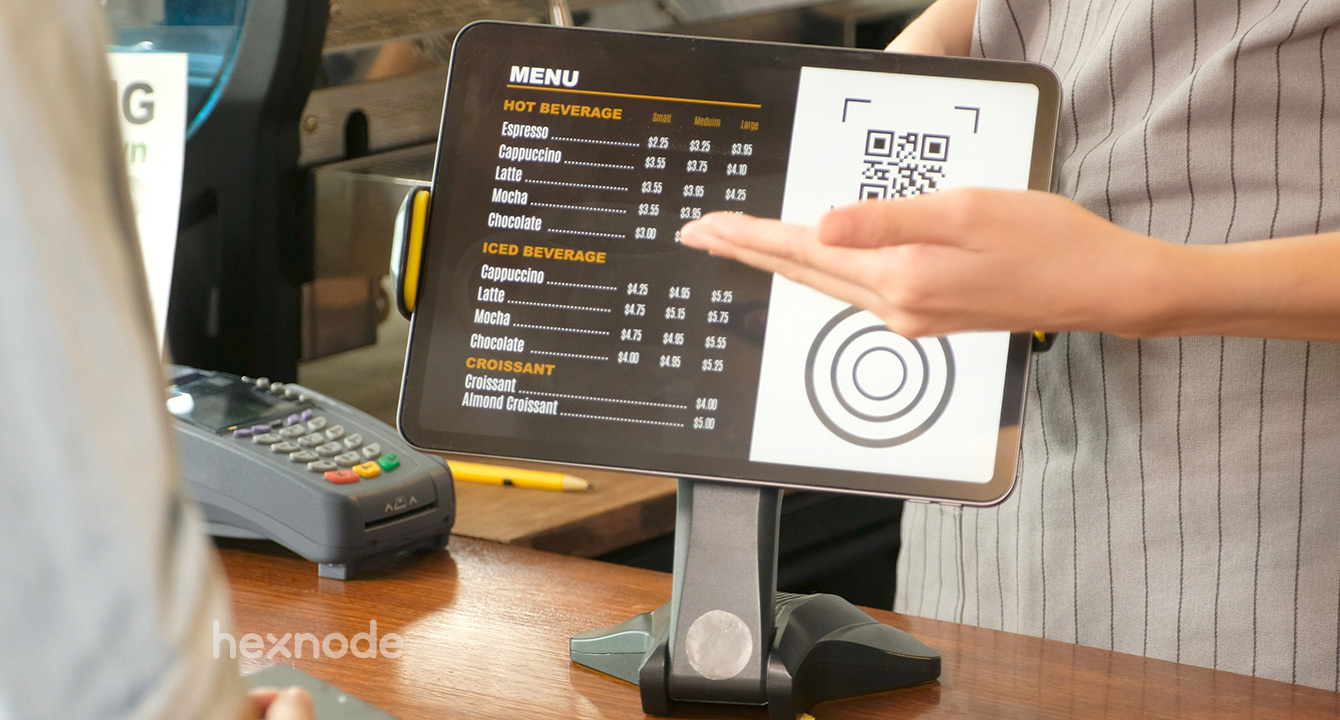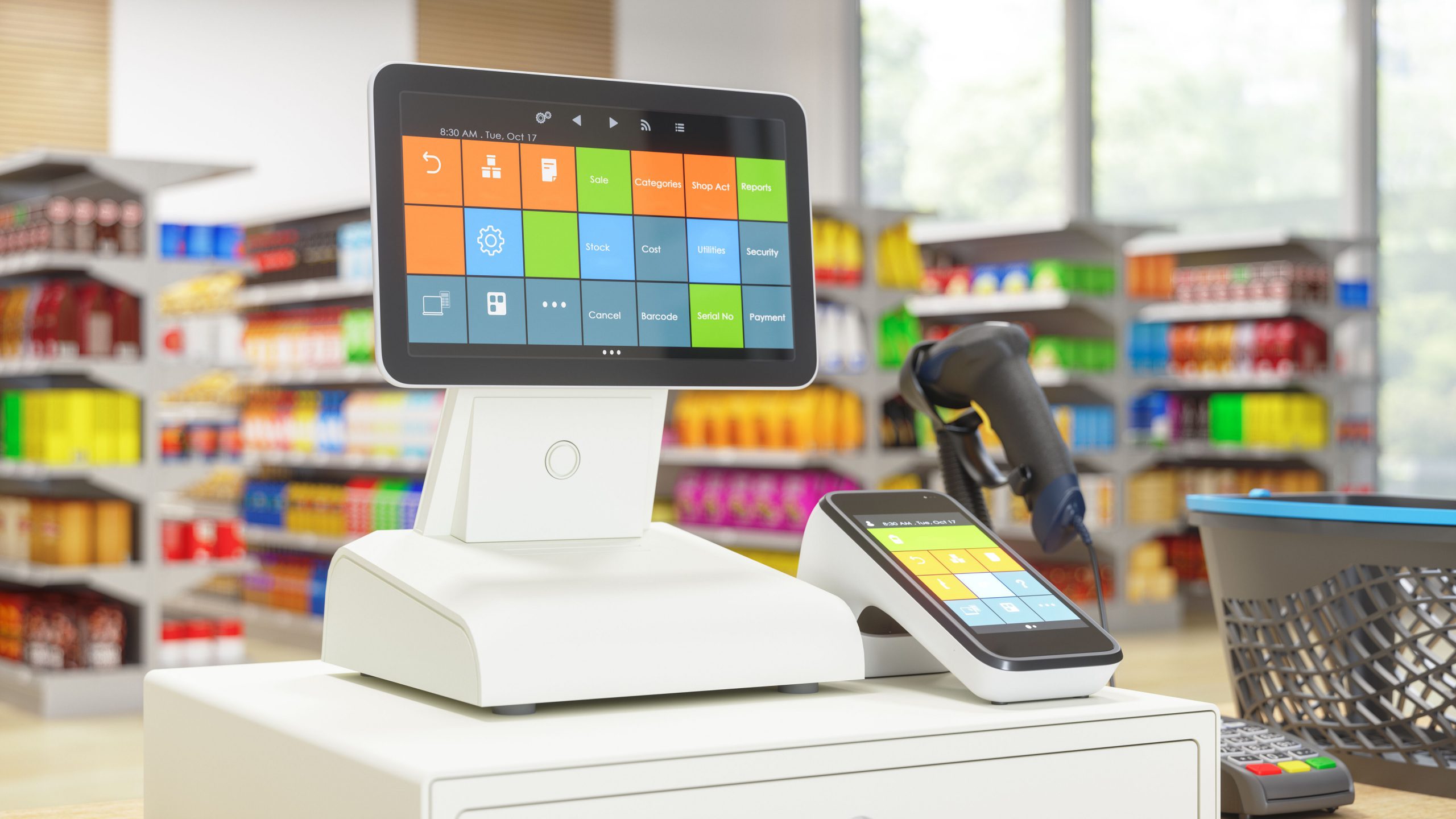How to set up a self-service kiosk for your business using Hexnode MDM?
Self-service kiosk is a terminal that provides customers with data or services. These kiosks provide more service efficiency, reduced queues, and fast

Get fresh insights, pro tips, and thought starters–only the best of posts for you.
Jayden Traoré
Jan 27, 2021
9 min read
The rapid development of technology in the last decade has changed the way we interact with our surroundings. Snail mails and faxes are ancient history, theatres and video stores are actively declining, I mean why would you go through the hassle of getting up, driving to the store, and renting the disks when you can watch Ross Geller say “Pivot! Pivvaaattt” on-demand from the comfort of your couch.

The development of AI, IoT, etc has removed the boundaries for the unattended marketplace. The developments in wireless payment options like Apple Pay, Google Pay, Samsung Pay, and other payment wallets have made the interaction with the kiosks far less tedious. The practicality and ease of use have seen the widespread adoption of kiosks across all types of industries.
Gone are the days when you had to force a crinkled paper bill into a vending machine for a quick snack or two. As an individual that has cursed and punched his fair share of misfiring vending machines, I sure am glad that the self-service retail industry has evolved to where it is today.
Those giant boxy machines have been replaced by smaller yet highly functional kiosk powered machines.

One of the major pushes towards the widespread deployment of retail kiosks came after Alibaba, the China-based retailer announced their plans to make the purchase of cars as easy as buying a can of Red Bull.
Autobahn Motors, a Singapore-based luxury car seller installed kiosks at their outlets which customers can use to select and customize their car. Within a few minutes of completion of the order process, the car will be parked out front awaiting your pickup. Not only does it give you the freedom to choose your car based on your needs but also saves you from a salesman trying to convince you to get something more expensive.
Ford Motor Company in collaboration with Panasonic has been rolling out smart service kiosks at some of their vehicle service centers. The customers can drop off a car and submit the key to the kiosk. Once the service is completed, they can return to the kiosk, pay the outstanding service charges and retrieve their key.
Smart parking meters powered by kiosks are also being spotted widely, no more fumbling around for change. These kiosks come with remote payment and management options to ease the process.
Several hospitals have set up registration and signup kiosks to facilitate the faster consultation of patients. It is also a precautionary measure to minimize the human-to-human interaction that can lead to the spread of diseases like Covid-19. Patients can submit their details, complete payments, get prescriptions, and schedule appointments from these kiosks.
You are about to board a 10hr flight you’ve got a splitting headache and for the life of you can’t find an Aspirin to soothe you. CVS, the American pharmacy giant has been helping travelers, college students, office workers, and more get their over-the-counter health care products and better-for-you snacks by placing their automatic retail kiosks at essential points like airports, hotels, transport hubs, college campuses, and office parks.
Retail self-service kiosks offer anonymity during your purchase, there are several medicines and personal products that people would prefer to purchase from a kiosk over a full-fledged shop. People have expressed their comfort in shopping through a kiosk for health services citing it to be a ‘judgment-free space without any pressure of social interaction’.
Flat out of heels is a brand that sells rollable flats out of kiosks to help women who can’t spend a moment longer in their heels. The Miami based startup was an instant hit among women mainly due to the 24/7 and wide availability of their products.
Uniqlo the Japanese clothing retailer started rolling out kiosks that sold their lightweight down jackets, heat-retaining shirts, and more. They rapidly expanded their business by targeting travelers that needed a quick escape from the shivery winters of the States.
There are also kiosks that allow users to print out customized t-shirts and souvenirs. The fashion industry is one of the most challenging industries to turn into an unattended marketplace but brands have shown that it is entirely possible to dispense jackets and shoes from a machine that previously met its match dispensing a can of coke.
The rise of online retail has been a major blow for brick-and-mortar stores, the introduction of kiosks into the shopping experience has helped these businesses stay afloat.
Sobeys the 2nd largest food retailer in Canada introduced their smart carts which have kiosks that can scan, weigh and bill the items as you add them to the card. You can pay and complete your purchase just by interacting with your smart cart.
Amazon took this to the next level with their Dashcarts that have cameras and sensors to automatically determine the item and the quantity that you put into the cart. A separate dash lane allows customers to roll out with the carts and the invoice will be emailed to you. No interactions and no queues.
Albertsons Companies recently introduced their automated grocery pickup kiosk in Chicago. Customers can place their orders and will be assigned a 2hr window for pickup, they need to scan their phones at the kiosk and their order will be robotically delivered to the front of the unit for pickup, and don’t worry it has separate temperature compartments to keep the frozen produce at the optimum temperature.
The combination of the comfort of shopping from your phone paired with the real-life experience has been widely accepted by users and could see a broader implementation in the near future.

Kiosks can be implemented directly or indirectly in almost any business scenarios you can think of like transportation, food, retail, hospitality, entertainment, etc. and some others you may not think of like;
The Snapbot kiosk was a bizarre implementation of kiosks by the social media giant Snapchat. The yellow-colored kiosk used to sell smart-sunglasses that could record short videos and upload them to the user’s Snapchat account. The kiosk would allow users to see themselves wearing the glasses before they made a purchase.
Similarly, kiosks selling Instagram followers and likes spotted at Russian malls were fascinating on so many levels. You could go out shopping with your friends, post a picture of it and get some likes without leaving your local mall.

Do you think the Snapbot kiosk was aimed at increasing their sunglass sales? Definitely not. The brand awareness and free press the innovation receives is miles beyond what a few sunglasses could earn the company.
Brands like Uniqlo and flat out of heels became popular because of their machines and accessibility rather than due to the quality and style of the products they offer.
Kiosks offer a futuristic adaptation of the marketplace to the customer and allow brands to bring their innovations into the buying experience. It raises brand awareness and gives you a signage that you can customize without any additional expense. The kiosk screens can display ads when idle and the body can be used to convey offers and other brand impressions. With high competition in the market, we often see the marketing efforts make a bigger difference than the actual product.
The 24/7 reliable kiosks only cost a fraction of what it would take to set up a store. The lower maintenance costs associated allow businesses to deploy kiosks on a larger scale over a wider area. They also act as a direct replacement to employees in several cases like check-in and ticketing ensuring faster customer addressal and an error-free service. This also allows businesses to reallocate their human employees onto more complex tasks rather than waste their resources on tasks that can be automated and run by machines at a fraction of the cost.
The benefits of using an MDM solution for setting up kiosks include:
Easy and versatile device management– MDMs provide more management capabilities and added features like remote actions, location tracking, etc that can be useful in cases of theft or misuse of the kiosks. The versatility and ease of management via MDMs make it the most ideal option for managing your kiosks. The kiosks can be monitored from a central console.
Platform independent– MDMs like Hexnode MDM support kiosks capabilities for multiple platforms like android, windows, iOS, etc ensuring that all types of devices can be converted into kiosks.
Cost-effective MDMs like Hexnode MDM offer kiosk management capabilities along with their base plans making them significantly cheaper than dedicated kiosk solutions. The additional device management features available and the possibilities for expansion makes MDM solutions the best choice for locking down your devices as kiosks.
Reusing the devices– MDMs help you to switch the devices used in the kiosk easily regardless of the platform. The devices can be reused as digital signage displays, screensavers, employee devices, etc the potential for reuse makes the investment in MDM powered kiosks the safest option.

As an aftermath of the pandemic, we have seen several kiosks turning touchless. Gesture and app control are just a couple of the ways the kiosks are being redesigned. With the rapid changes in our lifestyle and needs, the kiosks will undergo adaptations to sync with the community.
Countries like Japan, South Korea, and China have already proven the concept of the unattended marketplace, and many others are on the fast-track to widespread implementation. It looks like the future of the retail and services industry will be vended out at the touch of a button. *gets up to get an espresso from the office vending machine*.
Share your thoughts